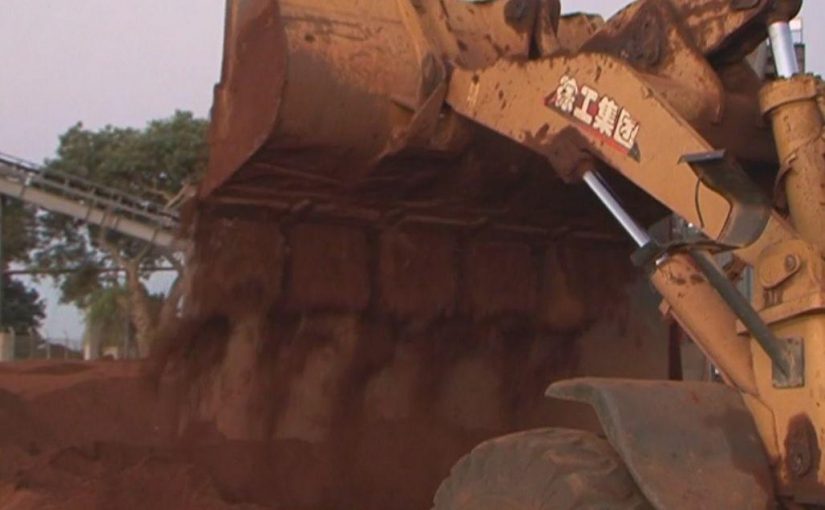Mozambique’s Mineral and Energy Minister joins African Energy Week as major LNG projects advance
More than 200 families contest resettlement process, compensation amounts from Chinese miner in Chibuto

Extraction of heavy sands continues to generate criticism. File photo: TVM
More than 200 families in Chibuto, southern Mozambique, are at loggerheads with the Chinese mining company Ding Sheng, who they accuse of not paying the agreed compensation for resettlement.
In the frame are 229 families from the communities of Mudadaia, Mudumeia, Mutsikwane, Mabekwane and Savene, who are affected by the government heavy sands extraction concession to the Chinese company Ding Sheng in the Chibuto district of Gaza province.
The company agreed to transfer the families to a resettlement site and pay compensation for each cashew tree left in the mining area. Residents, however, accuse the miner of failing to pay the agreed damages and are threatening to remain on site.
Julião Macuacua, who belongs to one of these families, says the company is paying less than it has already been paid to residents in another area of the district, where a factory and houses were built for resettlement.
“The amount to be paid has been changed, and we’re talking about 3,000 meticais per cashew tree,” he says. “How can someone with two cashew trees re-enter a new area?” asks Julião Macuacua, who reminds us that the promised 2017 transfer of families planned has still not materialised, delaying lives in the community.
The cashew plantation is the main livelihood of the Chibuto families. The community leader of Mudumeia, Eduardo Macuacua, regrets that the miner has changed the value of the compensations. “The company is not doing things as people want, and now the value has changed. If things do not turn out the way they were at first, it looks like the company will not continue operations here,” he says.
Lack of transparency in the sector
Alménio Langa, of the Christian Council of Mozambique in Gaza, says there is a lack of transparency in mining in Chibuto and in the country in general. “If there is transparency, there will be compliance with the law. They are already extracting, they are effectively working, although the law says that activities should only begin after the resettlement of the communities,” he says.
The provincial director of Mineral Resources and Energy and head of the resettlement commission, Castro Elias, acknowledges that the compensation amount proposed by the company is the minimum stipulated by a chart approved by the government, equivalent to 171 Euros per cashew tree.
“Twelve thousand meticais (171 Euros) per cashew tree: the proposal was from the company. The government would never say that this figure is too high, because our communities are entitled to that, but there is an approved table that gives the minimum value,” he says.
The Chinese company has not yet built irrigation for the families or designated grazing areas. Mozambican law also requires the construction of a technical school. Nevertheless, it wants to transfer the families to the Mudumeia resettlement zone, where it has completed the construction of 489 conventional houses.
DW Africa sought answers from the miner, but Ding Sheng representatives told us by telephone that they could not provide information because the population had turned its back on the company and the government.
ALSO READ: Chinese company starts heavy sands exploration in Mozambique












Leave a Reply
Be the First to Comment!
You must be logged in to post a comment.
You must be logged in to post a comment.